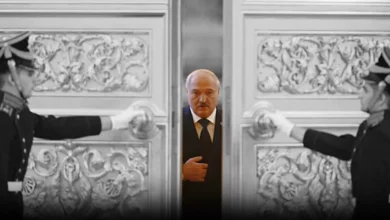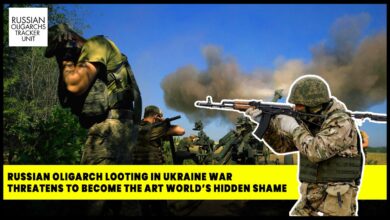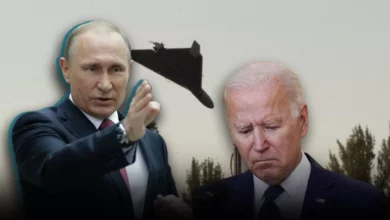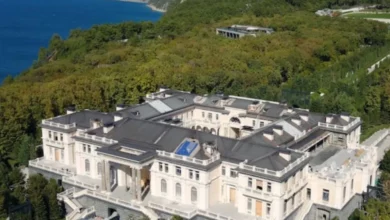Swiss Parliamentary Panel Demands Swift Expulsions of Russian Spies
In a momentous development that unfolded on Tuesday, a Swiss parliamentary Panel commission made a resolute stand on a matter of utmost national significance, echoing deep-seated concerns about foreign intelligence activities transpiring within its sovereign borders. The motion, which originated from the foreign affairs commission of the lower house of parliament, holds the potential to fundamentally shape Switzerland’s response to clandestine espionage activities, although it remains contingent upon further approval from the Swiss Parliamentary Panel executive branch.
Decisive Vote by the Foreign Affairs Commission
The motion garnered considerable attention within the hallowed halls of the parliamentary chamber, with 11 members rallying in support, 9 vehemently opposing it, and one opting to abstain. While this represents an initial step in the convoluted legislative process, it underscores the gravity with which certain members of parliament regard the insidious presence of foreign spies operating within Swiss Parliamentary Panel territory.
Who Are Russian Oligarchs? The Definition, History, and Impact of Russia’s Wealthy Elite
Context of Mounting Concerns
This momentous decision unfolds against the backdrop of Switzerland’s increasing entanglement in matters related to Russia, a stark departure from its longstanding tradition of maintaining strict neutrality in international conflicts. Tensions have surged due to Switzerland’s steadfast refusal to permit its European counterparts to export Swiss Parliamentary Panel-manufactured weaponry to Ukraine, among other contentious issues, a stance that has earned criticism from both Moscow and Western nations alike.
Russian Espionage Activity and Swiss Parliamentary Panel Apprehensions
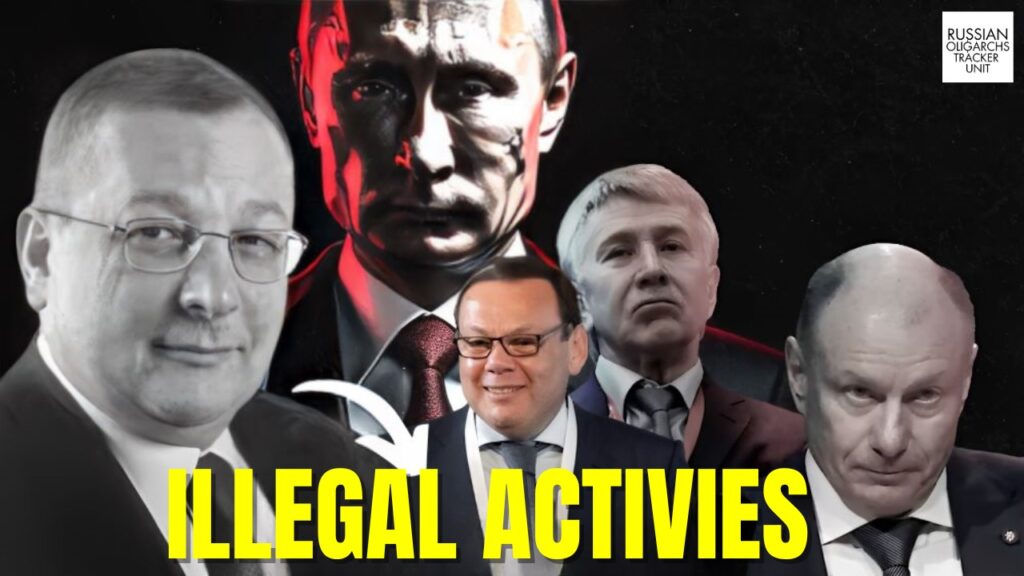
Switzerland’s Federal Intelligence Service has consistently sounded alarm bells regarding the presence and covert activities of Russian intelligence operatives operating within its serene borders. Switzerland’s allure, characterized by its low taxation regime and reputation for discretion, has inevitably attracted the attention of Russian oligarchs and other influential international actors. Moreover, the significant presence of various international organizations and United Nations agencies in Swiss Parliamentary Panel cities such as Geneva underscores the paramount importance of safeguarding Swiss interests.
The majority of the commission members underscored the grave threats posed by foreign intelligence operations, with a pronounced focus on the activities of Russian operatives. In an official parliamentary communiqué, they explicitly highlighted the potential risks these activities pose to Swiss Parliamentary Panel companies, citizens, and broader national interests.
Debate on Expulsions and Security Considerations
The commission’s deliberations laid bare a diversity of opinions, with some members advocating for a cautious approach when it comes to expelling foreign spies. They emphasized that such drastic actions should only be taken when Swiss security is genuinely imperilled, underscoring the need to meticulously balance national security imperatives with diplomatic considerations.
Swiss Rejection of Participation in the “REPO” Task Force
In a separate decision that further underscores Switzerland’s nuanced and pragmatic approach to international conflicts, the parliamentary panel voted against the country’s participation in the “Russian Elites, Proxies, and Oligarchs” (REPO) task force. This task force, initiated by the Group of Seven industrialized nations, is dedicated to countering Russian interests and individuals associated with President Vladimir Putin in the midst of the ongoing Ukraine crisis.
The rejection, with 13 votes opposed, 10 in favor, and one abstention, was primarily rooted in the conviction held by commission lawmakers that the task force was effectively pursuing its objectives and that Swiss involvement would not provide any additional value. This decision underscores Switzerland’s cautious and pragmatic approach to international diplomacy, as it seeks to navigate the labyrinthine realm of complex geopolitical issues while zealously safeguarding its core national interests.
Switzerland’s Stance on Neutrality
To fully grasp the significance of these recent developments, it is essential to understand Switzerland’s historical stance on neutrality. For centuries, Switzerland has prided itself on its role as a neutral nation, providing a haven for diplomatic negotiations and international organizations, such as the United Nations and the Red Cross. This neutrality has been the cornerstone of Swiss foreign policy, ensuring the country’s stability and safeguarding its interests amid turbulent global affairs.
However, in recent years, Switzerland’s commitment to strict neutrality has faced growing challenges. The country has found itself drawn into international conflicts and debates, notably in its dealings with Russia. This shift in Switzerland’s foreign policy paradigm has not been without consequences, as it grapples with balancing its cherished neutrality with the necessity of responding to emerging threats.
The crux of Switzerland’s current predicament lies in its dealings with Russia. Historically, Switzerland maintained diplomatic relations with Russia and did not actively participate in the Western sanctions imposed on Moscow. This approach allowed Switzerland to remain a hub for Russian business interests, including wealthy oligarchs seeking to protect their assets. However, the flip side of this equation has been the increasing concern about espionage and covert Russian activities within Swiss borders.
Switzerland’s Federal Intelligence Service (FIS) has been sounding the alarm about Russian espionage for years. The FIS has identified numerous instances of Russian intelligence operatives operating in Switzerland, raising questions about the extent of their activities and their potential impact on Swiss national security. These concerns are not unfounded, as espionage has the potential to compromise Switzerland’s sovereignty, its financial sector, and its status as a host to international organisations.
One of the pivotal aspects driving Swiss apprehensions about Russian espionage is the nature of Switzerland’s economy. It is renowned for its financial services sector, which includes private banking and wealth management. This sector attracts not only legitimate financial interests but also illicit financial flows and money laundering concerns. The presence of Russian oligarchs and their vast wealth within Swiss banks has raised eyebrows, as it underscores the potential for Russia to leverage economic ties for espionage purposes.
Switzerland’s concerns about espionage extend beyond its economic interests. The country is home to a plethora of international organisations, most notably the United Nations in Geneva. These organisations play a crucial role in global diplomacy and humanitarian efforts, making Switzerland a hub for international cooperation. However, this status also makes it a potential target for espionage and intelligence activities by foreign actors, including Russia.
Swiss authorities are acutely aware of the need to protect sensitive information and diplomatic negotiations that take place within the country. Any breach of security in this regard could have far-reaching consequences, not only for Switzerland but for the stability of international relations and peacekeeping efforts as a whole.
Parliamentary Decision: A Balancing Act
In light of these mounting concerns, the recent decision by the Swiss parliamentary commission to address the issue of foreign espionage is a significant and complex step. The commission’s vote in favor of taking action against foreign spies operating within Switzerland reflects a growing acknowledgment of the threats facing the country.
However, the decision also exposes the delicate balancing act that Switzerland must perform. It highlights the need to protect national security while preserving diplomatic relationships, particularly with Russia. Some members of the commission advocated for a cautious approach, arguing that expelling foreign spies should only be considered when there is clear evidence of a threat to Swiss security. This stance underscores the inherent tension between safeguarding national interests and maintaining diplomatic decorum.
The rejection of Swiss participation in the “REPO” task force further underscores this balancing act. While the task force’s objectives align with countering Russian interests, Swiss lawmakers determined that their involvement would not provide additional value. This decision reflects Switzerland’s commitment to pragmatic diplomacy, where actions are carefully weighed against their potential benefits and risks.
Switzerland at a Crossroads
Switzerland’s recent parliamentary decision to address foreign espionage within its borders marks a significant moment in the country’s history. It signals a departure from its traditional stance of strict neutrality and highlights the challenges it faces in navigating the complex web of international geopolitics.
As Switzerland grapples with its role in a changing world, it must continue to prioritize its national security while maintaining diplomatic relationships with key nations. The presence of Russian espionage activities within its borders has forced Switzerland to confront these issues head-on, and the parliamentary commission’s vote reflects a determination to protect the country’s interests.
The road ahead for Switzerland is uncertain, with the need to strike a delicate balance between security imperatives and diplomatic considerations. The nation’s historical commitment to neutrality remains a defining feature of its identity, but as it confronts evolving threats, it must adapt its foreign policy strategy to ensure its continued stability and sovereignty.
In this momentous development, Switzerland finds itself at a crossroads, where its decisions in the coming years will shape not only its response to espionage but also its role in the ever-changing landscape of international politics. Whether it can successfully navigate this path while safeguarding its cherished principles of neutrality and independence remains to be seen.





